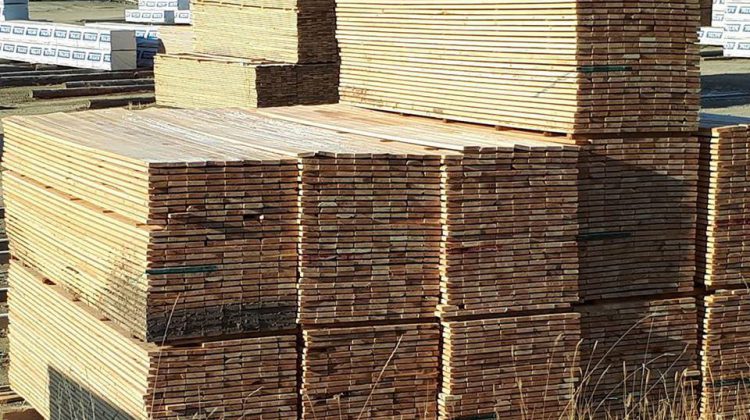The U.S. Department of Commerce has reduced the countervailing and anti-dumping duties on Canadian softwood lumber exports to the United States, but the celebration is muted on this side of the border.
Susan Yurkovich is the President of the BC Lumber Trade Council.
“Of course any time that the rates come down is a good thing so we welcome that, but we’re not jumping up and down because we shouldn’t be paying any duties. We’ll be paying 8.59 percent instead of 17.91 percent on average, so that’s good news. But we still shouldn’t be paying any duties because they’re not warranted, they’re unfair, and there’s no reason for them. We should be having free trade in lumber across the border.”
Yurkovich says it’s frustrating.
“It’s particularly frustrating for two reasons. It’s always frustrating, but when you think about it right now the U.S. producers are not able to produce enough lumber to meet their own domestic demand, so the U.S. needs our lumber and the customers want to be buying lumber. Then they add an extra tariff to lumber coming in, making it more expensive for U.S. consumers, and for Canadian consumers because the duties tend to get priced into the price for lumber. So at a time when we’re all facing these inflationary pressures, it’s just ridiculous to have additional tariffs on lumber.”
She says it also hurts Canadian companies as the money that is being collected, now in the neighbourhood of 9 billion dollars, could be used on investing in equipment, building new facilities, or training workers.
Yurkovich says they will continue to appeal the duties through the World Trade Organization and NAFTA’s new dispute process, but she says that can take years.
“This litigation was filed in 2017. We have yet to have a panel established to hear the countervailing duty argument because of the inability to agree on a panel selection of five members to hear the case, so it’s a very slow process. And in the meantime you have these administrative reviews annually, so there is a lot of litigation, there is a lot of process, it takes up a lot of time, a lot of energy and a lot of resources.”
Yurkovich says ultimately what needs to happen is for the two sides to sit down and have a discussion about how to find a durable resolution to this disagreement.
“That means getting U.S. industry and the U.S. government to come to the table and have a discussion about how we can serve the North American market, and how we can help consumers to get the products they want, products that are really increasingly important in our world. We’re all facing issues around the climate challenge, and people are more and more looking towards wood, and products made from forest fibre to build buildings, to use in all kinds of products from personal protective equipment, masks, etc.”
Yurkovich says the challenge however, is to get the U.S. industry to do that.
“Because of the way the trade laws work in the U.S., the industry doesn’t have a veto, but they have in effect a veto, so unless you can get the US industry to come to the table with their government, we can’t find a way forward.”
Something going on in the Cariboo you think people should know about?
Send us a news tip by emailing [email protected].










